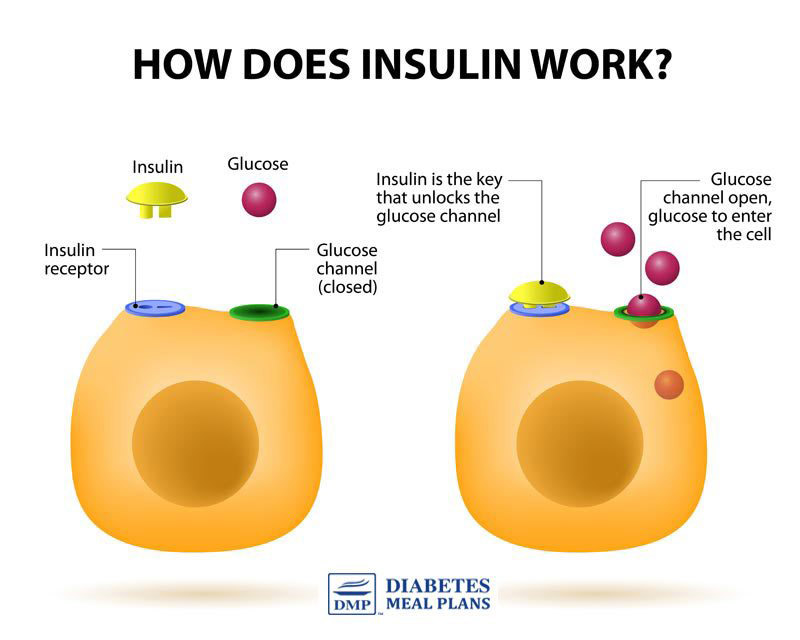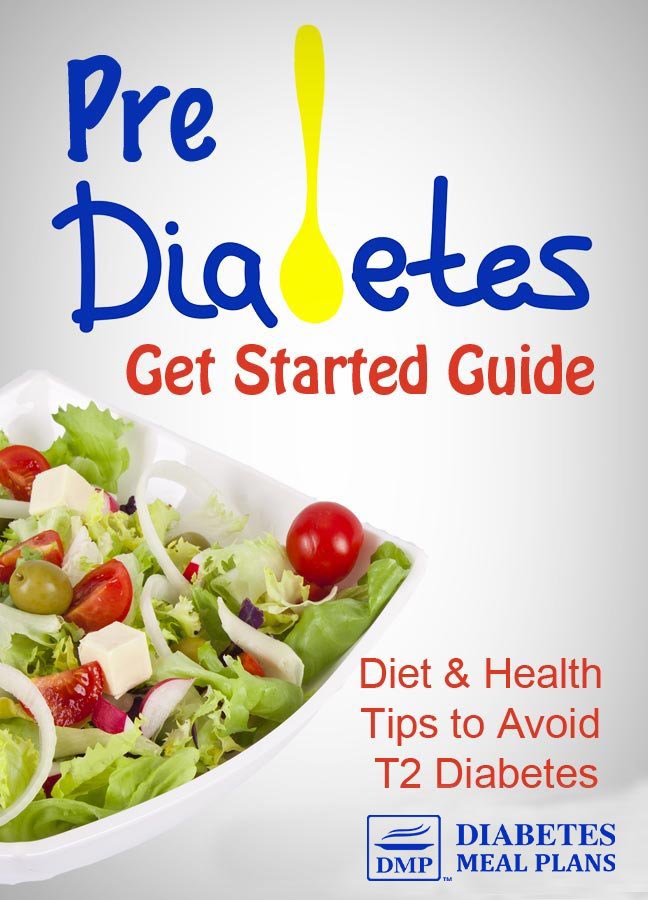Table of Contents[Hide][Show]
The good news is, you’re prediabetic!
While that still might be a hard pill to swallow, the fact is, a person can be prediabetic for up to 10 years before getting a type 2 diabetes diagnosis. And that means this is a great opportunity to make some positive changes and turn things around before you cross that line.
The 5 Pillars of Health Transformation
- Diet
- Exercise
- Sleep
- Stress
- Lifestyle
Below, we’ve compiled some great information to help set you on the right path to better health.
#1: Diet
The fastest way to lowering blood sugar and A1C is to lower your carbohydrate intake.
The type of carbs is important but the amount of carbs has the greatest influence on your results.
Here’s a simple explanation why: Blood sugar (aka blood glucose) is exactly that, sugar (glucose) in the bloodstream. A1C is a percentage measurement of the average amount of glucose in your bloodstream over a 3 month period.
All carbohydrates break down to glucose. Glucose enters your bloodstream (aka: blood sugar level). Different types of carbohydrates do enter the bloodstream at different rates. For instance, a simple carb digests faster, causing a quicker response, while a complex low glycemic index carb will digest slower and cause a slower, steadier rise in blood sugar.
However, ALL carbohydrates break down to glucose, therefore, the amount of carbs you eat has the most direct influence.
Tip: Choose one thing you can change starting today and find options and alternatives to make the transition easier.
Diet resources to get your started
- Guide to healthy carbohydrates
- What are simple and complex carbs
- How to lower blood sugar and A1C naturally through diet
- Where to start with your diet plan
- The easy way to reduce and control carbs
- 10 home remedies for sugar cravings
- Two day sample meal plan – note, this does say type 2 diabetic meal plan but this is still the perfect plan for you as a prediabetic
#2: Exercise
By now you’ve probably become familiar with the term insulin resistance.
Insulin is the hormone that facilitates uptake of glucose from the bloodstream into the bodies cells – such as cells in your muscles, liver, and so forth. When a cells in the body need energy they rely on insulin to help ‘unlock’ the cell so glucose can be transported into the cell.

When you are insulin resistant, insulin does not unlock the cells effectively so glucose builds up in the bloodstream. This is a catch 22 because your pancreas releases more insulin to try and help, then you have both high insulin and high glucose, making your cells even more resistant.
Exercise helps reduce insulin resistance by making the cells more insulin sensitive. It also has a direct effect on getting glucose out of the bloodstream and into the cells. Exercise also helps with weight loss.
Weight loss has no direct connection to blood sugar but weight loss decreases inflammation, increases insulin sensitivity and improves other biomarkers, which tends to have a snowball effect that influences glucose and A1C results.
Tip: Aim for at least 30 minutes per day but if just getting started, try for at least 10 minutes.
Exercise resources to get you started
- Exercise: Your need to know basics – this is written for type 2 diabetics but also applies to you as a prediabetic
- Walking
- Squat exercises
- Chair leg lifts
- Bridge exercises
#3: Sleep
Quality of sleep is an often overlooked and under appreciated factor in overall health and blood glucose regulation. But, prediabetes/ type 2 diabetes is a condition rooted in a disruption of hormones and lack of sleep affects our hormones, therefore it can directly influence blood sugar levels.
Sleep is absolutely essential to healthy bodily function – for brain function, mental alertness and focus, mood stability, healing and repair of blood vessels, immune function, and of course, hormonal regulation.
Lack of sleep decreases insulin and pancreas beta cell function, increases appetite, and carb/sugar cravings and increases inflammation and pain.
Tip: Make sure you get adequate sleep – an average of 8 hours per day is what’s needed.
Sleep resources to get you started
Please pin, tweet or share, then keep on reading. Thanks :)

#4: Stress
In the modern world, there is so much to do and there seems like so much less time to do it all. We are a fast-paced, high strung, convenience-driven society, and it’s a recipe for disaster!
Chronic low grade stress can be of great detriment to our health.
Prediabetes/ type 2 diabetes is a condition where glucose levels are higher than normal. Since we’ve already been talking about the hormone insulin, you’ll be interested to know that cortisol – our key stress hormone – raises insulin and blood sugar levels.
Stress management is critical because too much stress can contribute to elevated glucose levels, or lack of ability to gain good control.
This is one of the additional benefits of exercise – it helps mitigate the effects of cortisol. As you engage your body in physical activity, cortisol is reduced and thereby reduces sugar levels.
Stress also effects our emotions of course, and can lead to anxiety, depression, emotional eating and other things.
Tip: Exercise regularly and implement stress management tactics and quiet “me” time.
Stress resources to get you started
- Stress and hormones: How it influences your body
- Food psychology and mindful eating
- Depression and prediabetes/ diabetes
#5: Lifestyle
Intensive lifestyle changes can reduce your risk of getting diabetes by at least 58% – which is a lot!
These results are regardless of your age or situation.
The key tip: If you make permanent lifestyle changes you can avoid diabetes.
Permanent changes are the key. Don’t just think going on a “diet” for a while is going to fix things. Be prepared to change things for the rest of your life!
Start keeping a journal of your dietary intake and your everyday habits so you can take a closer look at your life and start making improvements every day.
- Make some dietary changes, starting with focusing on your carb intake
- Exercise at least 30 minutes per day
- Lose some weight if you need to
- Sleep more
- Stress less
Most importantly, see your prediabetes as a blessing and opportunity!
Lifestyle resources to get you started
- How to reduce your risk by 58-71%
- 21 days: 17 habits – a simple, effective habit change method
Blood Sugar
What are your blood sugar goals?
As a prediabetic, you want to aim to get your levels back to normal.
| Category | Fasting value | Post prandial / aka post meal | |
| Minimum | Maximum | 2 hours after meal | |
| Normal | 70 mg/dl | 100 mg/dl | Less than 140 mg/dl |
| 4 mmol/l | 6 mmol/l | Less than 7.8 mmol/l | |
| Pre-diabetes | 101 mg/dl | 126 mg/dl | 140-200 mg/dl |
| 6.1 mmol/l | 6.9 mmol/l | 7.8-11.1 mmol/l |
The numbers to keep in mind as a maximum you want to reach are 140 (7.8).
Blood sugar/ health resources
You might also be interested to learn more about blood sugar and A1C by browsing the following resources.
- 8 blood sugar questions answered
- Controlling blood sugar. What, why, how
- What is A1C
- Metformin 101
- How do you get diagnosed with diabetes
- Best diet for weight loss
Final Remarks
So you’ve got prediabetes. It’s not your fault you got here. It’s the way our world is today. We live in a fast food, stressed out society that promotes a state of illness and easily leads us to prediabetes or diabetes. But for you, this is good news, you don’t have diabetes so it’s just the beginning.
The beginning of listening to your body, learning more about yourself and what your body needs to have good health. The body is amazing like that. No matter how young or old, every single step you take in the right direction will make a HUGE difference.
Embrace your new health journey and see it as a wonderful adventure!
Please pin, tweet or share this info to help inform others.


Janice McClung
My dr. said that I’m prediabetic but I really have no weight to lose, what can I do without losing weight…I’m 62, 5’7″ and weigh 150
Emily - Dietitian (MS, RD)
A low carbohydrate diet can help lower blood sugar, but doesn’t necessarily have to be accompanied by weight loss if that isn’t necessary for you. This food list is a great place to start!
Jenny
Great information. Question is PCOS with insulin resistance. Always a prediabetic. Turned my heath up side down. Ditched most carbs. Lost 30kg repaired gut health. Fasting blood 5mmol.
Emily - Dietitian (MS, RD)
Hi Jenny. I am not sure I understand your question– are you currently suffering from any side effects from your PCOS? Trouble controlling your sugar?
It sounds like you’ve already made some positive changes to your health. Let us know if we can be of any further assistance.